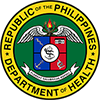The Pharmaceutical Division
In 1986, the National Drug Policy (NDP) was created under the leadership of then Health Secretary Alfredo Bengzon to address issues on access and affordability of essential drugs. Following shortly, the Generics Law of 1988 was passed to promote, require and ensure the production of an adequate supply, distribution, use and acceptance of drugs and medicines identified by their generic names.
The historic passing of the Generics Law and the first National Drug Policy (NDP) were designed to set up reforms on how medicines are supplied and distributed in the country, assure their safety and quality in the market and encourage prescribers, dispensers and consumers to choose and use generics that will generate the most health benefits and cost savings to individual patients, the health system and the country at large.
The first NDP focused on five (5) key action areas, known as the PQRST pillars:
1. P-eople empowerment to assist patients in making informed choices with regard to their medicines;
2. Q-uality assurance of drugs;
3. R-ational drug use by health professionals and consumers;
4. S-elf sufficiency in the manufacture and supply of drugs; and
5. T-ailored procurement to achieve efficiency and economies of scale in pharmaceuticals.
For more than 20 years, the Philippines has worked towards improving access to medicines grounded on the pillars of the NDP and the Generics Law to address the drug needs of Filipinos undertaking large-scale national health programs for priority diseases and guiding health providers in the rational and cost-effective use of medicines in public health facilities through the essential medicines concept adopted in the selection of drugs for the Philippine National Drug Formulary (PNDF).
By virtue of the Executive Order 366, under the Department of Health rationalization plan, the NCPAM is now known as the Pharmaceutical Division (PD). Other major programs of the PD include:
(a) the Generics Advocacy which aims to promote the use of generics among health professionals and the public;
(b) the Philippine National Formulary which is an integral component of the Philippine Medicines Policy (PMP) that aims to guide prescribers, dispensers and consumers on the rational use of medicines;
(c) the Electronic Drug Price Monitoring System (EDPMS) which enables the monitoring and analysis of medicines prices in the market;
(d) the Medicines Access Programs (MAP) for priority diseases such as hypertension, diabetes, cancers, HIV/AIDS and essential medicines for mothers and children.
Our goal
To contribute to improving access to essential medicines specifically:
1. to improve supply side access to quality essential medicines;
2. to ensure rational use of medicines by prescribers, dispensers, and patients;
3. to institutionalize transparency and good governance in the pricing and procurement of medicines.
Mission
To guarantee better health outcomes by using policy instruments and setting strategic directions aimed at improving access to quality essential medicines.
Vision
A center that leads in ensuring a policy environment conducive to universal access to quality essential medicines.
Contact Us:
Telephone Number: 02-8757734 Loc. 253
Address: 4th Floor, Philippine Blood Center, Lung Center Compound, Quezon Avenue, Quezon City
Email Address: dohncpam@gmail.com


